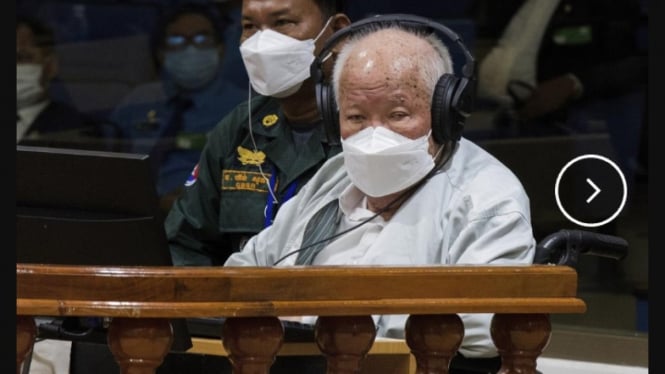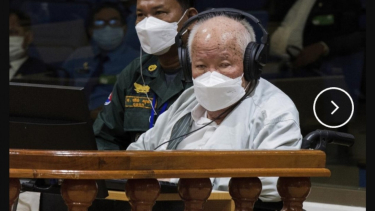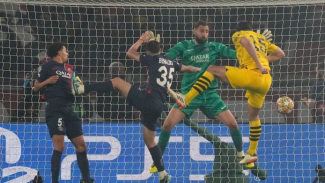Khmer Rouge Leaders Get Harsh Punishment, Killed Many Cambodians
- Associated Press
VIVA – The International Court of Justice in Cambodia rejected the appeal of a former Khmer Rouge government official on Thursday, September 22, 2022. Cambodia's most authoritarian and ruthless regime has finally received a harsh punishment.
The Khmer Rouge was a military movement with Communist ideology that ruled Cambodia from 1975 to 1979. During their reign, two million Cambodians were also declared dead as a result of the severe and brutal actions of the military movement.
In its latest session, the United Nations-backed tribunal reaffirmed the life punishment of Khieu Samphan, the last surviving defendant of the five senior Khmer Rouge members to be charged.
As quoted from Nikkei Asia on Friday, September 23, 2022, he was convicted in 2018 of genocide, war crimes, and crimes against humanity.
The decision essentially closes the book on one of the worst crimes committed in the 20th century. In total, the International Court of Justice in Cambodia was successful in convicting three people for the same crime.
"This day has finally come. Now, I can move on with my life," a 60-year-old man who lost a loved one in the atrocities of the Khmer Rouge era said.
"I nearly died three times. There is only a fine line between life and death." He added.
Ilustrasi Bentuk Pemerintahan Negara Kamboja
- U-Report
About a quarter of Cambodia's population died under the rule of Khmer Rouge leader Pol Pot from 1975 to 1979.
This Communist regime forcibly moved people from the cities to the countryside. It became a killing field and mass execution site for doctors, teachers, and anyone else considered part of the intelligentsia.
Then an invasion by Vietnamese troops in 1978 toppled Pol Pot and the Khmer Rouge fled to Thailand where they continued to fight back. Pol Pot escaped arrest, then he was executed in 1998.
Khieu Samphan, who served as nominal head of state in Pol Pot's regime, is also already serving a life punishment.
The punishment also differs from his 2014 punishment, which stems from the forced relocation of citizens and other crimes against humanity, which was upheld on appeal in 2016.
This time, Khieu Samphan will serve a life punishment for crimes, including the massacre of Vietnamese people and war crimes committed in prisons and the workplace.
For information, the Cambodian government cooperated with the United Nations to launch an international tribunal in 2006.
Not only Khieu Samphan, but there is also Nuon Chea the second leader of the Khmer Rouge and Kiang Guek Eav otherwise known as Duch.
Prime Minister Hun Sen, Cambodia's current leader, was also part of the force that defeated the Pol Pot regime. But Hun Sen was a member of the Khmer Rouge along with several senior active Cambodian government officials.
Because of the various interests involved, it took many years before an international tribunal was established. The court was ultimately against time because of the defendant's advanced age.
Because of the limited scope of the trial, the court uncovering the whole truth of the Khmer Rouge era remains a challenge.
A professor at Japan's Niigata University of International and Information Studies, Hiroshi Yamada added that through it all, the five defendants never faced what they did. Time had passed, and the victim's family had no choice but to give up.





















